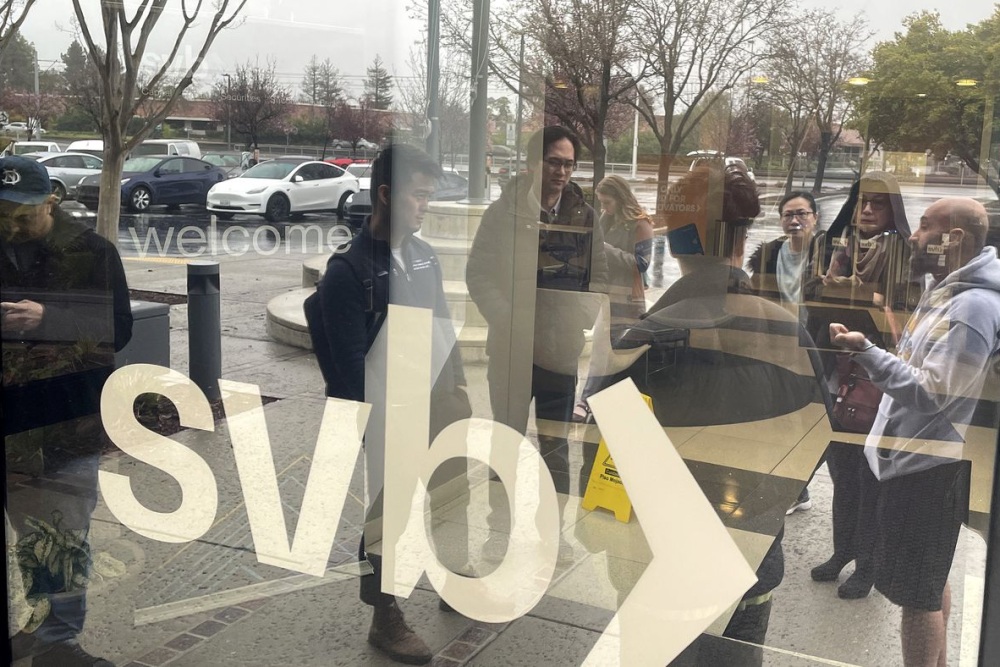Before the financial collapse come the aggressive anti-regulation lobbyists. These are often of the same ilk: loathing anything resembling oversight, restriction, reporting and monitoring. They are incarnations of the frontier, symbolically toting guns and slaying the natives, seeking wealth beyond paper jottings, compliance and bureaucratic tedium.
The collapse of Silicon Valley Bank (SVB), for a period of time the preferred bank for start-ups, is the bitter fruit of that harvest. Three days prior to the second-largest failure of a US financial institution since the implosion of Washington Mutual (Wamu) in 2008, lobbyists for the banking sector had reason to gloat. They had the ears of a number of GOP lawmakers and were pressing the case that Federal Reserve Chair Jerome Powell had little reason to sharpen regulations in the industry.
As a matter of fact, the converse case was put: the financial environment was proving too stringent, and needed easing up. This effort built on gains made during the Trump administration, which saw the passing of the Economic Growth, Regulatory Relief, and Consumer Protection Act. Then House majority leader Kevin McCarthy was particularly keen on winding back elements of the Dodd-Frank banking measures introduced in the wake of the 2008 financial crisis. In 2018, he got much of what he wished for.
Lobbyists for SVB were particularly aggressive in that endeavour, and even went so far as to seek exemptions from the Federal Deposit Insurance Corporation (FDIC), the body responsible for insuring bank deposits in times of crisis and institutional oversight. Two former staffers for McCarthy so happen to be registered lobbyists for SVB, a fact that shows how the US revolving door between politics and business continues to whirr at some speed. The SVB lobby list also includes figures who found employment under former President Bill Clinton, former Senator Mike Enzi (R-My), former Senator Tom Coburn (R-Okla.) and former Senator Arlen Specter (D-Pa.), just to name a few.
By the next day, the FDIC had placed SVB into receivership. The corporation promised that insured depositors would have access to their insured deposits on March 13; uninsured depositors would have to wait a bit longer, expecting an “advance within the next week.” But given that 90% of the bank’s deposits exceeded the amount guaranteed by the FDIC, the prospects for adequate recovery proved uncertain, at least till the FDIC, Federal Reserve and US Treasury promised protection for them.
Deputy Treasury Secretary Wally Adeyemo proved rather green in suggesting that the financial system, as things stood, would be resilient enough to hold off any contagion. “Federal regulators are paying attention to this particular financial institution,” he told CNN, “and when we think about the broader financial system, we’re very confident in the ability and the resilience of the system.”
This is bound to be misplaced. It’s certainly not the view held by former FDIC head, Sheila Blair, who argues that there are other banks in the system with large amounts of uninsured deposits and unrealised losses. “These banks that have large amounts of institutional uninsured money … that’s going to be hot money that runs if there’s a sign of trouble.”
David Sacks of Craft Ventures is also of the view that immediate intervention at the government level was required. “Where is Powell?” he wondered. “Where is [US Secretary of the Treasury Janet] Yellen? Stop this crisis NOW.” SVB, he proposed, should be placed with a top four bank. “Do this before Monday open or there will be contagion and the crisis will spread.”
Questions are being asked whether the anti-regulatory bug has gotten to the various authorities and agencies. Mike Novogratz, founder of Galaxy Digital, pondered whether all banks were now being treated like hedge funds. “Seems like a policy mistake.”
Economists such as Peter Schiff are even more damning, claiming that the entire US banking sector is set for a cathartic clean-up that will be greater than that following 2008. US banks were holding “long-term paper at extremely low interest rates. They can’t compete with short-term Treasuries.” In such an environment, depositors, in the pursuit of higher yields, would initiate mass withdrawals, resulting in a tidal wave of bank collapses.
Blame for the SVB debacle has been extensive. “This was a hysteria-induced bank run caused by VCs [venture capitalists],” opined Ryan Falvey, a fintech investor based at Restive Ventures. “This is going to be remembered as one of the ultimate cases of an industry cutting off its nose to spite its face.”
The oversight advocates are bound to agree. Dennis Kelleher, CEO of the non-profit Better Markets, is certainly one. “SVB’s stunningly quick collapse should put an end to the nonstop attempts by banks, lobbyists and their political allies to weaken capital and other financial regulations that protect depositors, consumers, investors and financial stability.”
This is likely to prove to be a flight of fancy. The banking lobbyists have destructive form and staying power. In 2019, the International Monetary Fund published a working paper noting that bank lobbying, in general, produced “regulatory capture, which lessens the support for tighter rules and enforcement. This, in turn, allows riskier practices and worse economic outcomes.”
As the great financial crisis showed, financial regulation is often the antidote to banditry. The pillaging and frontier types will always resist such tendencies. Again, they have been found wanting, and again, the harmful consequences of their ideas are going to prove deep and extensive.
